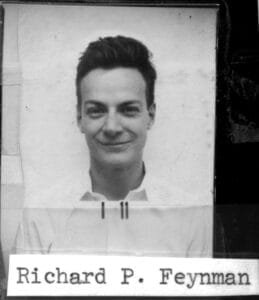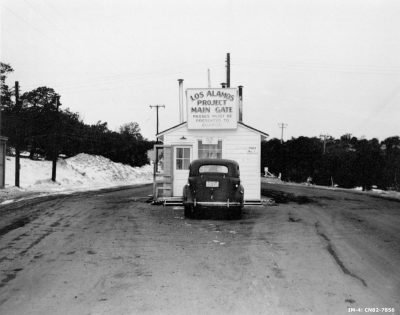Tending to Curiosity

People get smart by learning. Learning is also, in turn, facilitated by the smartness. Using this logic it may be easy to denounce a genius’s extensive knowledge and capabilities to their inherent IQ. Then I could hear Richard Feynman from the Youtube Short going “There’s no miracle people! It just happens they got interested in these things and they learned all these stuff.” I think this demonstrates that the other essential component is the channelling ability – to stream the hours to somewhere worthy of it. I would say his channelling is more potent than his knowledge. The ability to be receptive to the inner voices of curiosity and devoting hours accordingly is a gift totally separate from the learning aptitude, perhaps the more replicable one too. I could tell he has a talent in listening to his inner voice and acting upon it, or better put, just succumbing to it.
The time spent on a burst of curiosity would vary, but his would be considerably greater than what the average person would spend per each one. I could tell he really commits. On the longest horizon his pursuit of physics lasted a lifetime. He learned drawing to the level that he would sell some and get commissioned pieces. During the Los Alamos days he would go to the middle of the woods to practice drumming on his own. This passion eventually led him to take part in a band and play percussion in a ballet performance. He learned Portuguese and Japanese. He would learn how to pick locks to point out security loopholes in Los Alamos.

• but before I could come up with a good technique the summer was over, and I didn’t feel like continuing on that problem.
• I decided that was too hard for me and went back to Princeton.
• I gave up. I decided that wasn’t the language for me, and stopped learning Japanese.
• There were a lot of fools at that conference – pompous fools. So I won’t participate in interdisciplinary conferences any more.
• Since I was exhausted from reading all the math books, and discouraged from its all being a wasted effort, I couldn’t face another year of that, and had to resign.
On a shorter time scale, he experiments with ants to figure out how they navigate. He tries to sniff the surfaces of objects to see how close to a dog a man’s olfactory senses can get. And then there are running in the Sistine Chapel at opening to see a view unencumbered by anyone, exclaiming “MEEEEEEEEEEE!” in an auditorium full of peers to volunteer for the hypnosis demo, hurrying to see the cyclotron in Princeton on day one, asking female students in campus to pose for his drawing (including nude!) and many more. You would be surprised to see how often he mentions quitting in the book. It’s nice, to know that geniuses quit too. It is like he is demonstrating that time is finite, problems infinite, problems take time to solve, but it also takes time to know which problem you want to try solving, hence we need to strike a balance somewhere. However, in all cases I am convinced that he really devoted his energy into a problem before resigned.
Quick sleep techniques on the internet tell you to lay down, close your eyes, and heighten your senses to feel the air flowing through your lungs and feel the fingertips as the index finger and thumb are touching each other. I came to believe that curiosity deserves the same attention. With distractions present all around I feel my curiosities are not tended adequately these days, far less than Feynman tends to his. To breakdown the possible reasons behind it. One, general curiosity dwindled from all the distractions. Two, the receptor of curiosity got desensitized from all the distractions. Three, acting upon the curiosities did not happen from all the distractions. It should be one of the three.
Laughing & Making Others Laugh

Richard Feynman seems like he had the mindset of a high school kid throughout his entire life. Endless pranks, bets, and looking for something fun to do. Kids, when by themselves, without the help of any toys, would somehow figure out a way to play. They would invent games and toys. Feynman was just like that even during his time in Los Alamos during the experiments for humanity’s first atomic bomb. He would have the nerves to prank the military personnel there. For me it is perfectly acceptable and logical that the military would censor posts going in and out of the camp. It is the atomic bomb. It is also the world war. I would not question the system, let alone play with it. He would experiment various forms of content on letters to push to the limits to find out what is acceptable or not. On numerous occasions would his letters not go through. He devises a code with his wife for fun. With such knowledge about the censorship criteria, he would go on to bet with colleagues at the camp whether or not certain letters would bounce back.
 • I went on and checked some other things, which fit, and new things fit, new things fit, and I was very excited. It was the first time, and the only time, in my career that I knew a law of nature that nobody else knew.
• I went on and checked some other things, which fit, and new things fit, new things fit, and I was very excited. It was the first time, and the only time, in my career that I knew a law of nature that nobody else knew.
• On Wednesdays at the Princeton Graduate College, various people would come in to give talks. The speakers were often interesting, and in the discussions after the talks we used to have a lot of fun.
Another thing is picking locks. To demonstrate that locks are imperfect, he would go out of his way to examine different types of locks present in Los Alamos and fool his peers using his skills. From these incidents I see a motive beyond just quenching the curiosity of figuring out a system. I see a pure childlike joy of enjoying practical jokes and entertaining the audience. Lots of people are good at chemistry. Not everyone puts on a chemistry magic show for kids on the block. Lots of people are good with beats. Not everyone meets once a week to ad lib and sometimes play at school to entertain the kids.
Closure — the Last Anecdote
A series of anecdotes is a light, convenient, fun read. All except the feeling of inadequate closure. The book’s end gets no special treatment than any other chapter end. When the book was over I was left with a closed chunk of paper in my hand, trying to thread something together. But I did particularly like the final end-of-chapter remark. It goes like this. “So I have just one wish for you – the good luck to be somewhere where you are free to maintain the kind of integrity I have described, and where you do not feel forced by a need to maintain your position in the organization, or financial support, or so on, to lose your integrity. May you have that freedom.” I liked the good luck part. He essentially acknowledges that it is not always up to the person to be able to maintain such integrity. He also acknowledges that society cannot be changed in a day. He did not wish for an idealistic society where no one lays any force upon another. So instead, he wished good luck to the readers. I liked these underlying acknowledgements. They are touchingly realistic.
Concluding with a video of Richard Feynman that I consider to be the most beautiful and inspirational.
 There’s still a school of thought that cannot believe that the atomic behaviors is so different than large scale behaviors. I think that’s a deep prejudice, it’s a prejudice of being so used to large scale behaviors. And they’re always seeking to find to waiting for the day that we discover that underneath the quantum mechanics there’s some mundane, ordinary balls hitting or particles moving and so on. I think they’re gonna be defeated. I think Nature’s imagination is so much greater than man’s, she’s never gonna let us relax!
There’s still a school of thought that cannot believe that the atomic behaviors is so different than large scale behaviors. I think that’s a deep prejudice, it’s a prejudice of being so used to large scale behaviors. And they’re always seeking to find to waiting for the day that we discover that underneath the quantum mechanics there’s some mundane, ordinary balls hitting or particles moving and so on. I think they’re gonna be defeated. I think Nature’s imagination is so much greater than man’s, she’s never gonna let us relax!
Written from scratch by Meston Ecoa
No assistance was received from any form of Artificial Intelligence.
No assistance was received from any grammar or vocabulary enhancing software.
Source
Photos
• Thumbnail: The Big T (yearbook of the California Institute of Technology)
https://commons.wikimedia.org/wiki/File:Richard_Feynman_undated.png
• Feynman’s Los Alamos ID badge: Atomic Heritage
https://en.wikipedia.org/wiki/File:Richard_Feynman_Los_Alamos_ID_badge.jpg
• Los Alamos Project Main Gate, 1943: Los Alamos National Laboratory
• Youtube video: FUN TO IMAGINE with RICHARD FEYNMAN
Quotes
• Excerpts from Surely You’re Joking, Mr. Feynman!
• An excerpt from FUN TO IMAGINE with RICHARD FEYNMAN

